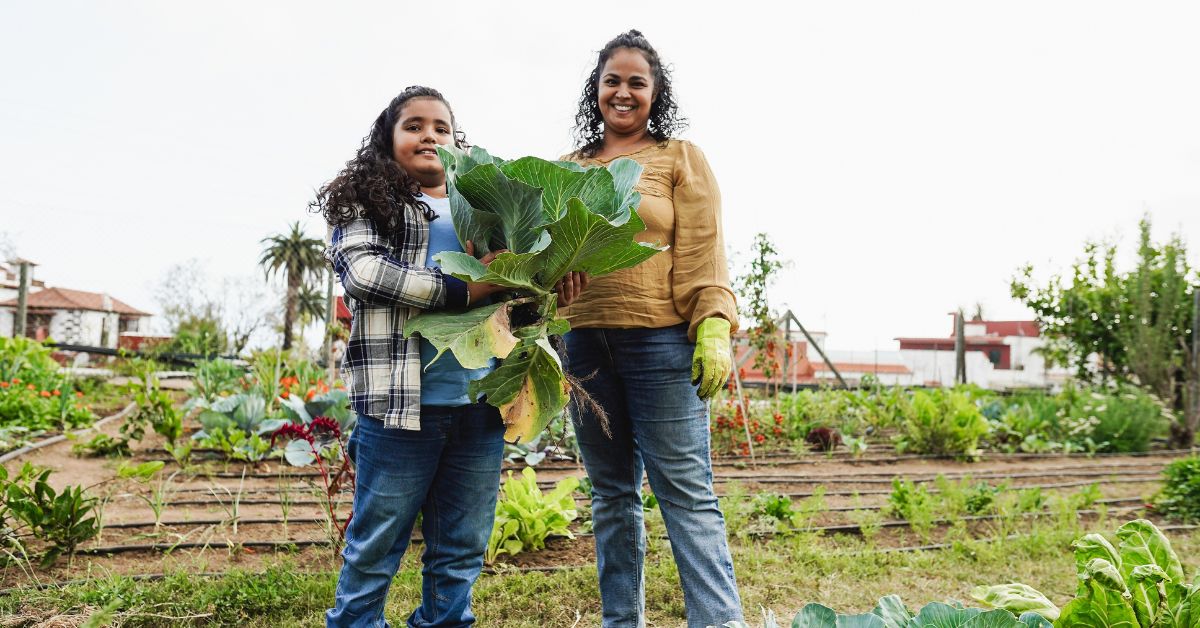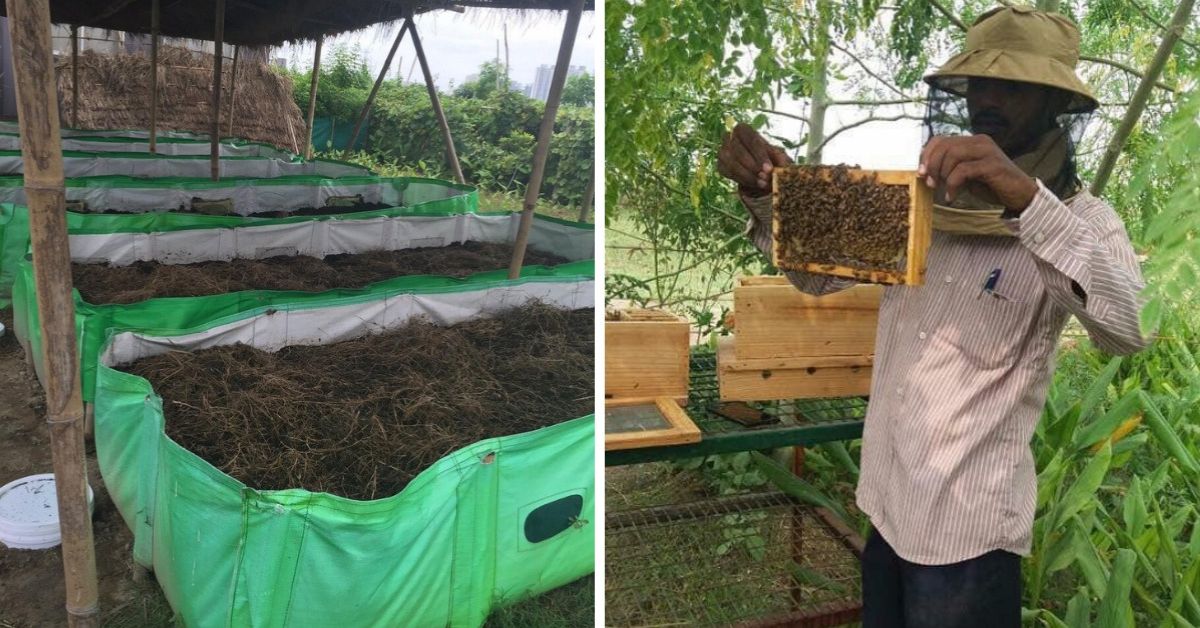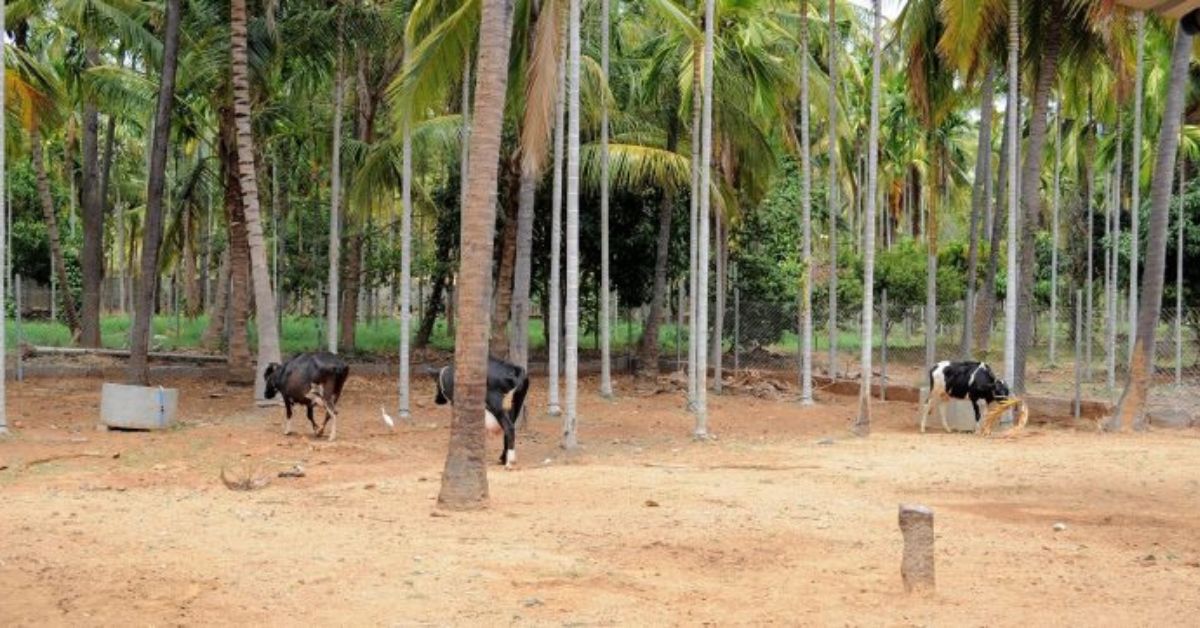Farms Near Big Cities Are Becoming the New Weekend Escape for Curious Kids & Tired Parents
(Representational featured image courtesy Shutterstock)
If you’ve ever seen your child think potatoes grow on trees or scream at the sight of mud, it might be time to pack up your weekend plans and head to a farm.
Not just any farm, but a sustainable one.
These aren’t dull textbook “field trips” from school. We’re talking about real-deal, get-your-hands-dirty farms where children can sow seeds, cuddle cows, churn compost, chase butterflies, and forget what WiFi even is.
It’s like pressing Ctrl+Alt+Delete on urban childhood!
Across India, a handful of inspiring farms near metro cities are showing families how growing food can be fun, eco-conscious, and deeply fulfilling. And no, you don’t need to know how to milk a cow to enjoy it.
Here are four farms where nature does the teaching and kids walk away with much more than dirty shoes.
 Across India, a handful of inspiring farms near metro cities are showing families how growing food can be fun. Representational image courtesy: Shutterstock
Across India, a handful of inspiring farms near metro cities are showing families how growing food can be fun. Representational image courtesy: Shutterstock
Watch food grow from seed to plate
Just six hours from Mumbai in the mango haven of Ratnagiri, Farm of Happiness is an off-grid organic farm where the best lessons begin with dirt under the fingernails. Run by ex-advertising professionals turned eco-farmers, the space thrives on traditional Konkan farming.
Here, children do more than just see vegetables — they plant turmeric, harvest rice, sun-dry kokum, pluck wild berries, and churn butter by hand. A solar-powered kitchen and free-grazing cows complete the picture, offering a simple but powerful lesson: knowing exactly where your food comes from.
For city kids used to supermarket aisles and online deliveries, this seed-to-stomach journey is nothing short of magical.
Interact with animals, soil and sustainable living directly
A stone’s throw from Delhi in Noida’s outskirts is Beejom Farm, a ten-acre oasis that could be straight out of a children’s book. Imagine goats rescued from slaughter nibbling quietly beside compost pits, cows named after freedom fighters grazing peacefully, and kids squatting next to dung cakes asking existential questions.
 Compost pits and bee-farming in practice at Beejom Farms.
Compost pits and bee-farming in practice at Beejom Farms.
Founded by Aparna Rajagopal, the farm champions indigenous species, natural farming, and zero-waste systems. Children are encouraged to make seed bombs, build planters out of cow dung, harvest vegetables for lunch, and even understand how cow urine is used as natural pesticide.
They come expecting a picnic and leave with eco-wisdom — and a new best friend in a goat named Bholu.
Learn through school-farm immersion
At Kaliyuva Mane, an alternative school just outside Mysuru, the farm isn’t a weekend attraction, it’s part of the syllabus. Most students here come from underprivileged or rural backgrounds, but what they grow with their own hands, transforms lives.
The nearby Vanasuma eco-farm, which supports the school, is where kids milk cows, build compost pits, water saplings, and track weather to understand planting cycles. They see how water is conserved through bunds and how livestock is managed responsibly. The farm even uses drip irrigation from its own rainwater harvesting tanks.
City families can plan immersive day visits, where children learn alongside students who grow their own mid-day meals. It’s a blend of nature, empathy, and equity — all in one powerful experience.
Observe sustainable dairy-farm ecosystems in action
If your child loves animals or drinks three glasses of milk a day, Akshayakalpa Organic Farm in Karnataka is an eye-opener. This farmer-led initiative transforms conventional dairy farms into self-sustaining organic havens.
 Cows are not tied at Akshaykalpa and are free to graze anytime on the organically grown fodder by the farmers.
Cows are not tied at Akshaykalpa and are free to graze anytime on the organically grown fodder by the farmers.
The cows here live in open spaces, eat pesticide-free fodder, and produce antibiotic-free milk. Kids can walk through solar-powered barns, peek into biogas units where cow dung is turned into cooking gas, and see how even cow urine is repurposed as disinfectant or fertiliser.
Most importantly, they witness a circular economy in action — where nothing is wasted, and everything has a role. Suddenly, ‘farm to fork’ becomes more than just a restaurant trend.
What kids really learn on a farm
On sustainable farms, biology isn’t about diagrams; it’s about earthworms, buzzing bees, and green leaves that fold when touched. Kids remember what they feel.
- Stewardship over screen time
Feeding a goat or pulling out weeds might seem trivial, but it teaches children something algorithms can’t, and that is care, patience and connection.
- The joy of collective effort
Most sustainable farms thrive on community. Whether it’s working with other kids or learning from farmhands, children see firsthand what collaboration looks like.
Why does cow dung not smell bad here? What happens if you plant tomato seeds in a sock? On farms, curiosity doesn’t get swiped away; it gets answered, hands-on.
Make it a family memory, not just a visit
- Choose farms that allow kids to do, not just see.
- Let them ask messy questions (and maybe even clean the compost bin).
- Swap car rides with train journeys or buses when possible — it adds to the adventure.
- Extend the learning — start a herb garden, try composting kitchen waste, or cook something they harvested.
- Your child may not remember every science class, but they’ll never forget the day they pulled out a carrot with their own hands — or discovered a worm was, in fact, not gross.
In a world where children are growing up swiping before they walk, sustainable farms offer a rare reset. It’s where nature replaces Netflix, compost beats Candy Crush, and kids learn that magic isn’t made on screens, but in soil.
So the next time you think of a weekend getaway, don’t head to a mall, instead, head to a farm. You won’t just grow memories. You’ll grow values.
News